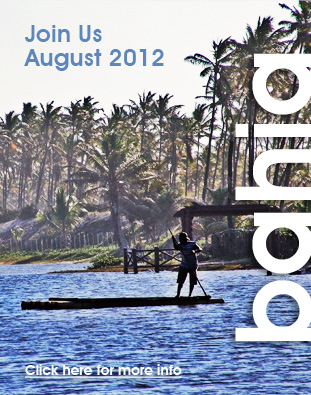

Join Our Mailing List

proverb:
"Tomorrow belongsto the people who
prepare for it today."
- Guinea, West Africa
Marcus Garvey Cultural Heritage Program (MGCHP)

The Marcus Mosiah Garvey Cultural Heritage Program (MGCHP) is the foundation of our existence. Designed to offer African people the strongest sense and history of self, Ifetayo’s MGCHP runs year-round and includes a Saturday program as well as special workshops and summer cultural tours.
The MGCHP provides historical information about the great cultures of Africa and the cultures of African descendents globally to over 160 youth and 50 parents annually. By learning the language and cultures of the African Diaspora, families develop a sense of connection with the vast and complex history of their ancestors.
- Provide exposure to international cultures of African origin and descent, thus providing a broader global perspective and historical understanding of African culture and its survival into the twenty-first century.
- Expose students to the rich traditional history of African cultures.
- Assist students in developing an understanding of global economic and social realities.
- Provide classes, workshops and opportunities for cross-cultural dialogue.
- Develop relationships with members of the global communities students visit.
- Develop cultural awareness, self-worth and self-esteem through the introduction to and exploration of the histories and cultures of the African Diaspora.
The program has three active major components and two planned components:
- Cultural History Classes: Ifetayo offers four weekly Saturday classes for youth aged 6-16 and their families for forty weeks each year. The classes introduce cultural awareness. Students can attend classes with their age group or with their parents. By offering a choice of four sessions, students are able to tailor these classes around their Cultural Arts class schedule. There are currently 50 youth participating in the MGCHP.
- Malcolm X Annual Scholar Lecture: Targeted toward both youth and adults, this lecture series brings in African scholars and historians three times a year to discuss critical issues and trends relevant to the African Diaspora. In 2002-2003, Ifetayo sponsored a free film and seminar on the African presence in Asia and Australia for children and adults by leading scholar and historian Runoko Rashidi. The lecture served over 80 children and 160 adults. We were also fortunate enough to experience annual lectures by in-house scholar Dr. K. Bunseki Fu-Kiau and Dr. Marimba Ani.

|
Jamaica (1997, 2011)
Serving a large Caribbean community the pilgrimage to Jamaica allowed many of the Ifetayo families to explore their heritage on a deeper level as participants took classes in dance, music and the history of Jamaica. |

|
Ghana (2001 , 2007)
On both journeys to Ghana, the youth participated in traditional rites ceremonies which allowed them to reconnect to their heritage. The learning during the ceremonies was not only for the”initiates” but for the communities in which the ceremonies where being conducted as the connection in the Diaspora. Participation in the ceremonies deepened the understanding for the history of Ghana and its people for all whom completed this pilgrimage. |

|
Brazil (2003, 2012)
This exchange allowed the participants that traveled to Bahia, Salvador the opportunity to reconnect with their African roots through dance, music and ceremony. The exchange included a visit to Cachoeira, where one of the oldest women’s societies, Irmandade Da Boa Morte, conducted their annual festival. Ifetayo will host its first annual Connecting Youth Conference in Bahia, Brazil in August of 2012. |

|
South Africa (2005)
As HIV/AIDS became an international epidemic the Ifetayo Youth Ensemble began to address this issue and its affect on youth through their production called “TAG: It’s Not a Game. While in South Africa, the ensemble and the travel participants had an opportunity to see firsthand how powerful youth voices are in the fight for change which included a performance at the world renowned Market Theater in Johannesburg. |

|
Cuba (2002)
Through cultural exchange participants had the opportunity to experience and explore the role of historical customs and spiritual dichotomy inherent in the tradition within the Cuba traditions including the songs, dance, rituals, language, foods, beading, clothing, prayers that are prominent within Santeria, Lucumi, and Yoruba traditions. |

|
Senegal (2006)
To return to the “Door of No Return” on Goree Island was an awakening for all the travelers who paid homage to their ancestors during this international exchange journey. Participants also had the opportunity to learn traditional African dance from members of the National Ballet of Senegal. |

|
Ethiopia (2009)
The journey to Ethiopia began in Brooklyn with a series of free Amharic classes for adults and youth. Through these classes participants were able to learn about the culture and history of Ethiopia. During the trip participants visited historic sites including the churches in Addis Ababa and Lalibela. |

|
Language Institute and Film Series: These two program components are currently sleeping, but will be offered soon. |

